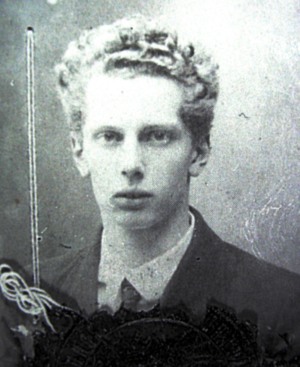Related Research Articles
This is a list of notable events in music that took place in the year 1951.

Robert Eugene Ward was an American composer who is best remembered for his opera The Crucible (1961) after the 1953 play of the same name by Arthur Miller. He was awarded the Pulitzer Prize for Music for that opera in 1962.

Seiji Ozawa is a Japanese conductor known for his advocacy of modern composers and for his work with the San Francisco Symphony, the Toronto Symphony Orchestra, the Vienna State Opera, and the Boston Symphony Orchestra, where he served as music director for 29 years. He is the recipient of numerous international awards.
John Harris Harbison is an American composer, known for his symphonies, operas, and large choral works.

Boris Blacher was a German composer and librettist.
Joseph Horovitz was an Austrian-born British composer and conductor best known for his 1970 pop cantata Captain Noah and his Floating Zoo, which achieved widespread popularity in schools. Horovitz also composed music for television, including the theme music for the Thames Television series Rumpole of the Bailey, and was a prolific composer of ballet, orchestral, brass band, wind band and chamber music. He considered his fifth string quartet (1969) to be his best work.
Bernard Rands is a British-American contemporary classical composer. He studied music and English literature at the University of Wales, Bangor, and composition with Pierre Boulez and Bruno Maderna in Darmstadt, Germany, and with Luigi Dallapiccola and Luciano Berio in Milan, Italy. He held residencies at Princeton University, the University of Illinois, and the University of York before emigrating to the United States in 1975; he became a U.S. citizen in 1983. In 1984, Rands's Canti del Sole, premiered by Paul Sperry, Zubin Mehta, and the New York Philharmonic, won the Pulitzer Prize for Music. He has since taught at the University of California, San Diego, the Juilliard School, Yale University, and Boston University. From 1988 to 2005 he taught at Harvard University, where he is Walter Bigelow Rosen Professor of Music Emeritus.

Gerald Barry is an Irish composer.
Meriwether Lewis Spratlan Jr. was an American music academic and composer of contemporary classical music.

Craig Smith was an American conductor who is considered a seminal figure in Boston's Baroque music revival of the 1970s and 1980s. At the beginning of his career, in 1970, he founded Emmanuel Music, a widely recognized organization that continues to focus on performances of the works of Johann Sebastian Bach.

Oscar Strasnoy is a French-Argentine composer, conductor and pianist. Although primarily known for his stage works, the first of which Midea (2) premiered in Spoleto in 2000, his principal compositions also include two secular cantatas and several song cycles.
William Mayer was an American composer, best known for his prize-winning opera A Death in the Family.
Odaline de la Martinez is a Cuban-American composer and conductor, currently residing in the UK. She is the artistic director of Lontano, a London-based contemporary music ensemble which she co-founded in 1976 with New Zealander flautist Ingrid Culliford, and was the first woman to conduct at the BBC Promenade Concerts in 1984. As well as frequent appearances as a guest conductor with leading orchestras throughout Great Britain, including all the BBC orchestras, she has conducted several leading ensembles around the world, including the Ensemble 2e2m in Paris; the New Zealand Symphony Orchestra; the Australian Youth Orchestra; the OFUNAM and the Camerata of the Americas in Mexico; and the Vancouver Chamber Orchestra. She is also known as a broadcaster for BBC Radio and Television and has recorded extensively for several labels.

Lambertus Reiner "Reinbert" de Leeuw was a Dutch conductor, pianist and composer.
Hermann Reutter was a German composer and pianist who worked as an academic teacher, university administrator, recitalist, and accompanist. He composed several operas, orchestral works, and chamber music, and especially many lieder, setting poems by authors writing in German, Russian, Spanish, Icelandic, English, and ancient Egyptian and Greek, among others.
Esther is a 1956 English-language opera by Jan Meyerowitz to a libretto by Langston Hughes based on the biblical story in the Book of Esther. The opera was premiered at the Festival of Contemporary Arts at the University of Illinois at Urbana–Champaign.
Walter Courvoisier was a Swiss composer.
Helge Jörns is a German composer and music educator.
References
- ↑ Allan Kozinn (26 December 1998). "Jan Meyerowitz, 85, Composer on Moral Subjects". The New York Times . Retrieved 17 January 2014.
- ↑ "Jan Meyerowitz". Milken Archive of Jewish Music . Retrieved 17 January 2014.